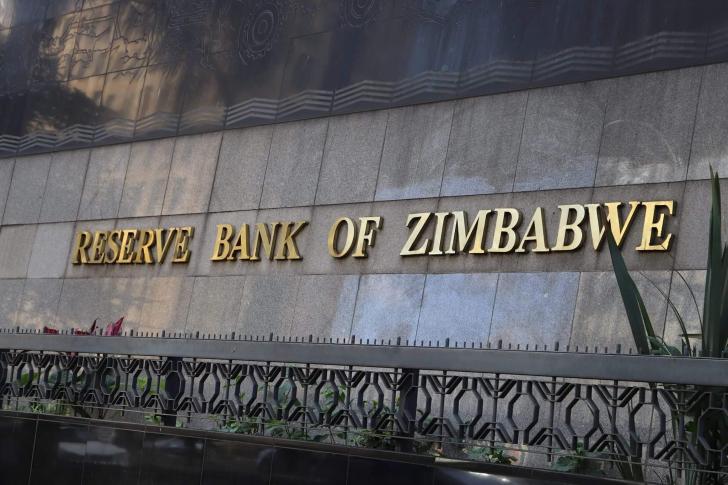News / National
Billions 'wiped off' Zimbabwe banks
18 Oct 2024 at 11:28hrs |
0 Views

Bankers in Zimbabwe have attributed a significant downturn in revenues to frequent changes in the country's functional currency, as first-half financial statements revealed a staggering loss of billions in Zimbabwe Gold (ZiG) due to economic distortions.
As companies reported their earnings for the period ending June 30, 2024, it became evident that revenues had plummeted by nearly 50% compared to the same timeframe in 2023. This stark decline highlights the ongoing economic turmoil that Zimbabwe has faced for nearly 25 years, with little hope for resolution.
Chief executive officers across the banking sector expressed frustration over the complexities introduced by hyperinflation in early 2023 and the subsequent volatility experienced in 2024. Financial statements from 15 commercial banks and mortgage lenders indicated that the difference in revenues between the first halves of 2023 and 2024 was approximately ZiG10 billion, which coincidentally matches the sector's total profit for the same period.
Lawrence Nyazema, president of the Bankers Association of Zimbabwe (BAZ), explained that the drastic fluctuations in currency and inflation have made it challenging to rely on absolute figures for investment decisions. "Given the different currency and inflation regimes between 2023 and 2024, comparison would need some expertise in determining and undertaking adjustments or conversions," he noted.
Nyazema further pointed out that the perceived revenue drop primarily stems from exchange rate and conversion issues rather than actual business performance. "The basic issue is institutions are using different accounting treatments and rules. There is no common basis for comparison," he added.
The introduction of ZiG, a currency backed by gold and other high-value commodities, initially appeared to stabilize inflation when it was launched on April 5, 2024. However, financial reports revealed that the underlying challenges—such as power shortages and limited access to foreign currency—have continued to hinder industrial productivity.
During the final quarter of the review period, banks suffered severe losses, with write-downs varying from ZiG1.8 billion to ZiG39,025,036, depending on the institution's size. Notably, First Capital Bank, listed on the Victoria Falls Stock Exchange, reported a revenue increase, making it the only lender to experience positive financial performance during this tumultuous period.
According to Nedbank, the switch from the Zimbabwe dollar (ZWL) to ZiG on April 5, 2024, effectively ended the hyperinflationary environment that had plagued the country. As a result, the bank noted that its financial statements for the first half of 2024 were not adjusted for price changes, complicating comparisons with prior years.
Sibongile Moyo, managing director at Nedbank, emphasized that while current financial numbers align with International Financial Reporting Standards, they remain difficult to compare with those from 2023 due to the impacts of hyperinflation accounting.
In a recent monetary policy statement, Reserve Bank of Zimbabwe governor John Mushayavanhu revealed that banks collectively earned ZiG10 billion in profit during the review period. However, BAZ cautioned that the sector continues to grapple with significant challenges, including a liquidity crisis and the lack of a lender-of-last-resort function for U.S. dollar-indexed transactions. This environment has prompted banks to adopt a cautious approach to lending, further exacerbating the economic difficulties faced by Zimbabweans.
As companies reported their earnings for the period ending June 30, 2024, it became evident that revenues had plummeted by nearly 50% compared to the same timeframe in 2023. This stark decline highlights the ongoing economic turmoil that Zimbabwe has faced for nearly 25 years, with little hope for resolution.
Chief executive officers across the banking sector expressed frustration over the complexities introduced by hyperinflation in early 2023 and the subsequent volatility experienced in 2024. Financial statements from 15 commercial banks and mortgage lenders indicated that the difference in revenues between the first halves of 2023 and 2024 was approximately ZiG10 billion, which coincidentally matches the sector's total profit for the same period.
Lawrence Nyazema, president of the Bankers Association of Zimbabwe (BAZ), explained that the drastic fluctuations in currency and inflation have made it challenging to rely on absolute figures for investment decisions. "Given the different currency and inflation regimes between 2023 and 2024, comparison would need some expertise in determining and undertaking adjustments or conversions," he noted.
Nyazema further pointed out that the perceived revenue drop primarily stems from exchange rate and conversion issues rather than actual business performance. "The basic issue is institutions are using different accounting treatments and rules. There is no common basis for comparison," he added.
During the final quarter of the review period, banks suffered severe losses, with write-downs varying from ZiG1.8 billion to ZiG39,025,036, depending on the institution's size. Notably, First Capital Bank, listed on the Victoria Falls Stock Exchange, reported a revenue increase, making it the only lender to experience positive financial performance during this tumultuous period.
According to Nedbank, the switch from the Zimbabwe dollar (ZWL) to ZiG on April 5, 2024, effectively ended the hyperinflationary environment that had plagued the country. As a result, the bank noted that its financial statements for the first half of 2024 were not adjusted for price changes, complicating comparisons with prior years.
Sibongile Moyo, managing director at Nedbank, emphasized that while current financial numbers align with International Financial Reporting Standards, they remain difficult to compare with those from 2023 due to the impacts of hyperinflation accounting.
In a recent monetary policy statement, Reserve Bank of Zimbabwe governor John Mushayavanhu revealed that banks collectively earned ZiG10 billion in profit during the review period. However, BAZ cautioned that the sector continues to grapple with significant challenges, including a liquidity crisis and the lack of a lender-of-last-resort function for U.S. dollar-indexed transactions. This environment has prompted banks to adopt a cautious approach to lending, further exacerbating the economic difficulties faced by Zimbabweans.
Source - the independent
Join the discussion
Loading comments…



































